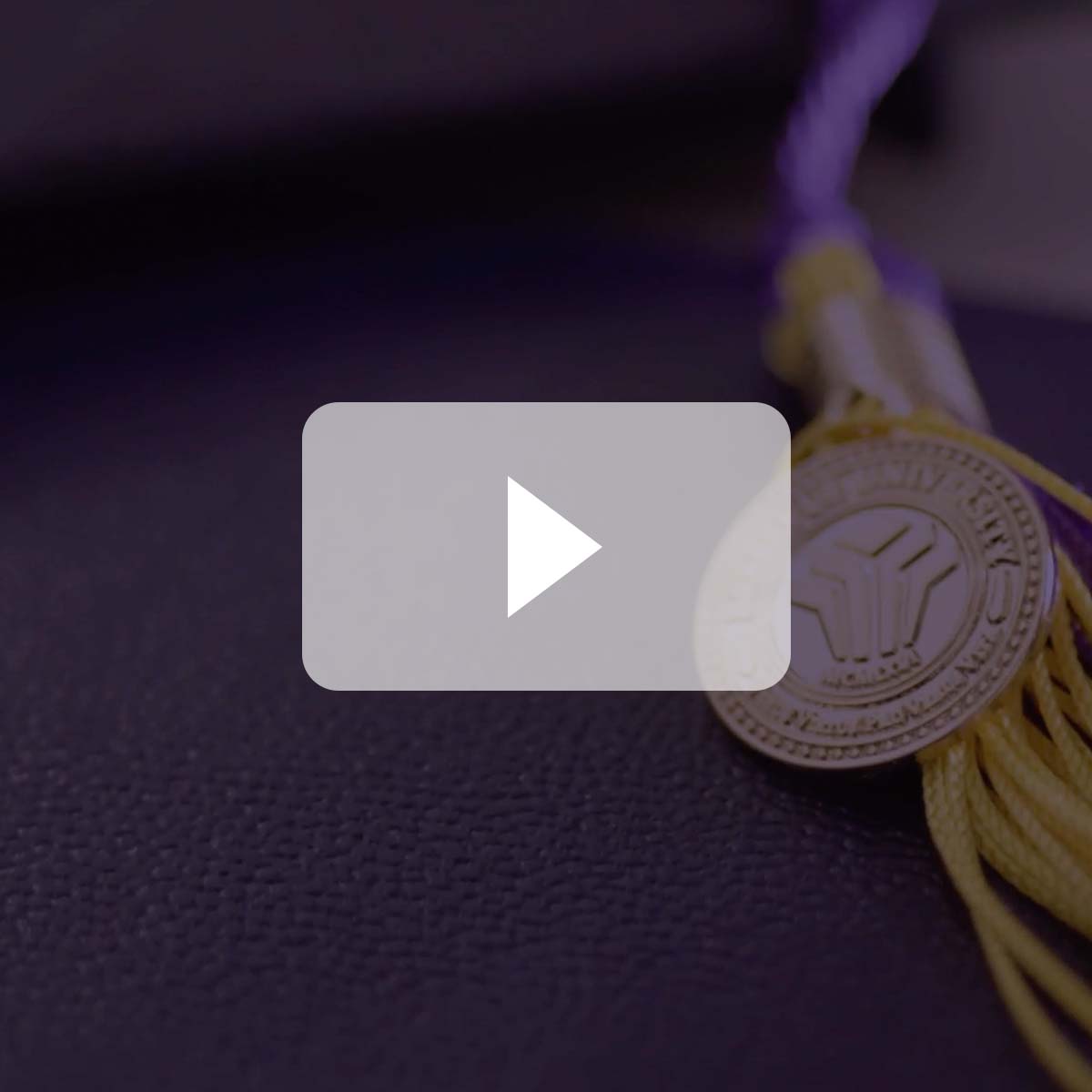Transferring from community college to university: Your step-by-step guide.
Starting and finishing a program at a four-year institution is not the only way to earn a bachelor’s degree. For many students, the preferred journey involves transferring credits from community college to university.
Students who successfully complete an associate degree or quite a few courses at a community college often find their path is accelerated and more affordable when they transfer to a four-year school.
In addition, the transfer process itself is a lot less daunting than you might expect. Once you review the steps below, you should feel more prepared to advance your education.
5 Steps for transferring from community college to a university
Bear in mind that the full associate degree transfer isn’t the only option. If you’ve completed any community college courses, you could apply them toward a bachelor’s degree to help you graduate that much sooner.
According to Scott Kizzire, dean of enrollment management at Bellevue University, knowing what you really need as a student can help you to start asking important questions when comparing schools.
“First off, do they have the program you’re looking for?” Kizzire offers. “What type of format are you interested in — online or in person? And does it fit your schedule? Then go talk to an admissions representative to find out about program and cost details.”
Having conversations with schools is a good starting point because it’s important to know if your credits will transfer smoothly. This is why you should ask each university you’re considering to review your prior coursework, whether this is by submitting an online form or by working directly with an enrollment representative.
At Bellevue University, this process of outlining a preliminary degree plan is actually standard for any community college student looking to transfer. “I present this to students on a one-on-one basis, and they’re often not receiving it from other schools,” Kizzire says. “It kind of triggers them to ask for it in their next conversation.”
Requesting this type of specific information is important because, as Kizzire points out, it helps you understand exactly what you need to do to achieve your goal of holding a bachelor’s degree.
Once you’ve identified the best schools to transfer to, you’ll want to apply. This process is fairly straightforward. It mostly entails filling out fields related to your personal information, previous education, employment history, and so on. Many schools have arduous admissions requirements, such as essays, letters of recommendation, and test scores, so make sure to find out what you need for each school you’re applying to. Schools like Bellevue University, on the other hand, are considered “open-access institutions.” This means there are relatively few admissions requirements to help ensure that every student is able to pursue an education — and get started quickly.
Note that there can also be additional criteria for transfer students, which may include submitting official transcripts, exceeding GPA minimums, and ensuring you’ll take the required number of credits at the school from which you’ll graduate (these are known as residency requirements). These policies all vary by school. At Bellevue University, for instance, community college transfers who’ve obtained an associate degree can apply all of those credits toward a bachelor’s degree. And there are also options for community college students who don’t have a full associate degree, as well as those students who took additional courses to supplement their degrees.
“We value all the credits you’ve earned from your prior education,” Kizzire says. The one exception to note is developmental or remedial coursework, which isn’t accepted whether it was part of a degree program or not.
One additional element that students applying to Bellevue University need to complete is something called an Academic Readiness Assessment. While it might sound like an extra hurdle, it’s incredibly beneficial for students.
“It’s a 10- to 12-question assessment to help give you a sense of what challenges you might face as you complete your degree,” Kizzire explains. Those could include needing additional time to adapt to technology or needing more support from family, friends, and coworkers. He adds this also allows your enrollment counselor and student coach to better understand how to help you succeed.
Because a bachelor’s degree is a higher level of education, there’s usually a cost difference when you go from community college to university. Some community college students are used to being able to pay for their education with grants they’ve received along with their personal savings.
“When you come over to a four-year university, the tuition rate may be different,” Kizzire acknowledges. “You may want to apply for financial aid and seek out grants and scholarships.” Applying for financial aidis a completely separate process from applying to schools, so you’ll need to make sure to complete and submit a Free Application for Federal Student Aid (FAFSA).
It’s also wise to get started early — don’t wait until you’re accepted or enrolled. Most universities will communicate this to students pretty clearly, but some institutions go above and beyond in helping students navigate the process. At Bellevue University, each enrollment counselor serves as a point person you can rely on to help you understand exactly what comes next.
“We try to eliminate any surprises as best we can,” Kizzire says. “We want our students to know exactly what they need to get done.”
However, don’t forget to apply for scholarships and grants even if they don’t cover the entire cost of attending university. There are many awards out there for students who are from certain geographic areas, pursuing particular careers, or performing well in school. Many institutions offer awards of their own as well, so make sure you ask how to apply for those scholarships.
If you applied to more than one university, you’ll have to make a final selection before enrolling. It can be difficult to choose, so take some time to review what each school provides. You might, for instance, want to attend an institution that offers an especially robust array of online support resources, like virtual writing assistance, tutoring programs, and highly personalized academic advising.
Also know that not every school extends a formal acceptance letter. Bellevue University automatically admits applicants who meet the eligibility requirements and submit all their documents. This makes enrolling simple because, once you are admitted, your enrollment counselor will introduce you to your Student Coach — the academic advisor who will work with you throughout your entire program.
After you’re enrolled, your transition from community college to university is effectively complete. While it might feel a bit intimidating to get your bearings at first, there are many ways to engage with your faculty, student coach, and peers.
“We try to do as much as we can to welcome students — even from a distance,” Kizzire says, adding, “We want to develop this small community within our larger university so people feel connected.”
Achieve your education goals
Transferring from community college to university doesn’t have to be complicated. Of course, choosing the right school for your final destination makes a big difference. Bellevue University, for instance, has a generous transfer policy and an array of support resources to ensure former community college students are prepared to succeed.
If you’re eager to further your education, you might want to find out how your community college experience could apply toward a bachelor’s degree. To get a snapshot of what a program might look for you at Bellevue University, request a credit evaluation today.
Have questions about next steps? Reach out to us!
Request InfoOther resources we think you may like.
Advice for Transferring Colleges.
Transferring colleges can feel overwhelming — but it doesn't have to be. Keep these 3 things in mind.

How to Transfer Colleges
If you're looking to complete your degree, be sure to follow these 5 important steps.

Do my credits transfer? 7 things to consider.
Curious if all your credits will transfer? Read these seven considerations for college credit transfer.

How to find the best schools to transfer to: 6 factors to look for.
Learn how to find the most supportive schools for college credit transfer so that you can get the most from your experience.

Transferring from community college to university: Your step-by-step guide.
Figuring out how to balance work and college is essential for busy students. Consider these tips and tricks to successfully juggle it all.
Transfer All Your Credits
If you're headed back to school, you should get credit for all your previous coursework. Learn what makes Bellevue University a transfer-friendly college.
1000 Galvin Road South
Bellevue, Nebraska 68005
402.293.2000
402.293.2000
1.800.756.7920
1.800.756.7920
More Contact Details ›
Technical Support ›
© 2025 - Bellevue University











